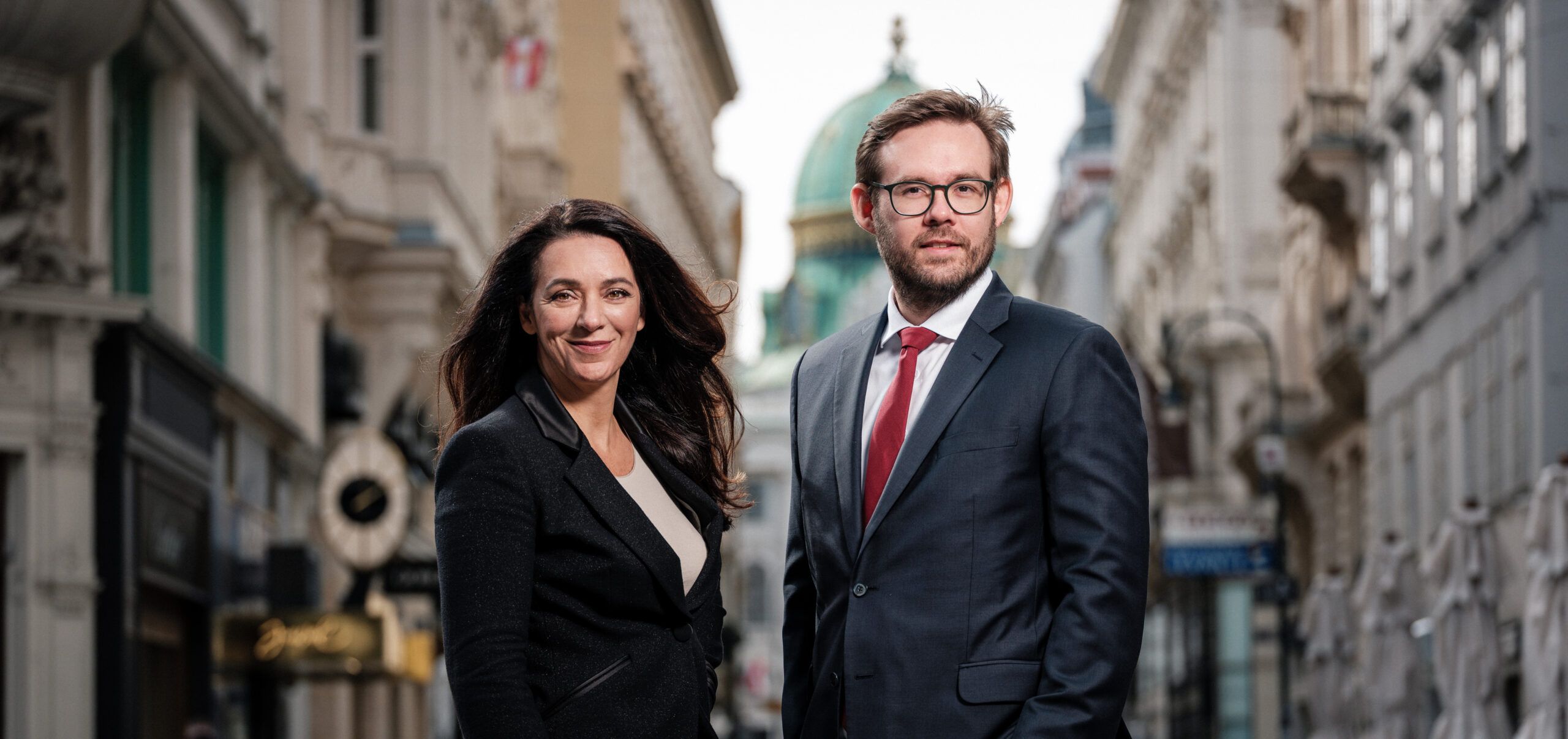The activities of law enforcement authorities and the impact on the economy have changed
“A significant impediment to our economy.”
Lawyers Simone Petsche-Demmel and Andreas Pollak on the tightened investigative practices within economic criminal law and the consequences for Austrian companies.
TREND: What was the motivation behind creating a report on economic criminalization? ANDREAS POLLAK: From our professional experience, we’ve observed that the activities of law enforcement authorities and the resulting impact on the economy have changed. The approach is becoming more intense. With this report, we wanted to clarify if the business community generally perceives it the same way. SIMONE PETSCHE: We mostly deal with those who are already involved in a proceeding, which could naturally lead to a distorted perception. That’s why this question intrigued us.
TREND: Is the thesis that it’s not so much the laws that have changed, but rather their application and interpretation? PETSCHE: Exactly. By today’s standards, matters are often pursued that were previously considered legally acceptable. On the one hand, it’s commendable when investigations are conducted independently of a person’s or organization’s reputation. On the other hand, unpredictable practices by authorities can be problematic as they create legal uncertainty.
You once provided the example of a bank employee knowingly conducting questionable transactions for a customer. Doesn’t this help prevent crimes if there are consequences for such actions? POLLAK: Individuals who have no decision-making power in a criminal matter weren’t pursued in the past. While striving to prevent crimes is generally good, Austrian criminal law, in our view, doesn’t sufficiently address minor contributions to offenses. Is it really necessary to bring such individuals to trial in 30 court sessions? It would be better to settle such matters out of court, but this isn’t possible in Austria once the damage exceeds 300,000 euros. There’s a lack of flexibility and moderation. PETSCHE: The prosecution includes all individuals who might have some connection to a crime, and all are pursued with the same vigor, even though there are significant differences in terms of criminal intent, or the subjective aspect of the offense isn’t met. And then it takes years to ascertain whether a person acted intentionally, knowingly, or unknowingly.
Is this why the number of investigations and court proceedings is increasing? PETSCHE: That is one of the causes. Additionally, more matters are being investigated, especially when they are amplified by media coverage within the political sphere. In the past, false testimony would have only been pursued by prosecution authorities upon the order of a judge, not on their own initiative. We are witnessing a paradigm shift.
Does this tougher approach mostly apply to cases involving politics, because someone is always pursuing political interests? POLLAK: The extent to which a case is publicly visible can make a difference. Most economic criminal proceedings without direct political involvement generally don’t receive widespread attention. However, even in these cases, practices have significantly intensified. There are searches at federal authorities based on witness statements, which would have been unthinkable before. There are ongoing visits or coercive measures at banks that would not have been authorized a few years ago. The threshold for becoming a suspect has undoubtedly changed even in non-political cases.
Is this because investigators have easier access to incriminating material or due to a societal shift? POLLAK: It’s a mix of reasons. The mere creation of an authority named the Economic and Corruption Prosecution Office is a clear political statement, which is certainly driven by a societal change. Additionally, there are chats and/or data storage devices providing more evidence, a shift in reporting practices, and the fact that more matters are being brought to the attention of the prosecution authorities. PETSCHE: The concept of proportionality is assessed differently today. Some searches, which were once seen as disproportionate interventions, are now justified by the interest in clarification. This reflects a change in values.
But that’s not necessarily condemnable, is it? PETSCHE: Not at all. It’s an important factor for the rule of law, but of course, it leads to more interventions and more proceedings, which also take longer – and thus have more far-reaching consequences for those involved. The proportion of investigations that ultimately end up in court is decreasing. One possibility would be not to immediately launch investigations for every suspicion, but to raise the threshold. However, if we say that society wishes to sanction potentially criminally relevant behavior, we as a society are challenged to deal with the fact that only one out of 20 pursued individuals is actually convicted, and this requires a sincere legal protection for all those who are not convicted. The phrase “Presumption of innocence” is, in truth, a caricature of itself and does not change the stigmatization and fate of individuals involved in a proceeding. POLLAK: With increased investigative activity, costs also arise in terms of the affected parties’ damaged reputation and their legal representation. The issue of who bears these costs or compensates for incurred losses has not been fairly resolved. Improvement is needed in many aspects.
Are damages not adequately compensated when cases are dropped or acquitted? POLLAK: It would be a start to clearly and publicly announce that a crime wasn’t committed, rather than merely stating that a person couldn’t be convicted. It’s also worth considering whether investigations need to last for ten years or if they could be conducted more quickly. And there is no appropriate compensation for the funds one has had to spend on their defense.
The prolonged duration of proceedings has been discussed often. What measures could help shorten this? POLLAK: The distribution of resources within the prosecution authorities should be reconsidered. Currently, it’s based on the principle: I have these resources, so it will take this amount of time. It should be the opposite – like in a reasonably well-organized law firm: I have this much time, so I need these specific resources. Moreover, there are many points of fracture. Generally, motivated and willing individuals are working, but often much time passes before the various responsible entities even come together. PETSCHE: From my perspective, our approach to securing various mobile devices is a source of many problems. If I find an entire life history of a suspect on a mobile phone and then examine it, it naturally takes an incredibly long time. If we had a specific directive that only what directly relates to the incriminating action can be evaluated, we would be much more efficient.
Investigation files often find their way to the media. Should this be legally restricted? PETSCHE: In Germany, the verbatim use of investigative content by the media before a trial is initiated is considered a criminal offense. I would greatly welcome this in Austria, as it would act as a strong deterrent against handling files as freely as we currently see. The current practice is very uncomfortable for the accused, who have no means to defend themselves.
But it’s also uncomfortable for authorities, as it creates a certain pressure for investigation or decision-making. I understand the public’s interest, but it’s harmful to the rule of law. As already noted, in most cases, there is no trial. However, the damage has already been done. Suspicion remains: There must be something to it.
Does the intensified legal practice also lead to a situation where dynamics in companies suffer, and managers take fewer risks? POLLAK: That’s absolutely a concern. When companies consult us to assess potential criminal risks, this process already takes a lot of time and energy. Particularly in economic law, only conduct that represents a blatant, intentional violation of the law should be criminal. In an ideal world, it wouldn’t be necessary for us to approve things from a criminal perspective. In reality, however, that’s often the case far too often. Certain provisions – such as the law regarding Russian sanctions or the upcoming EU standard for due diligence in all supply chains – are so complex that one often can’t be sure if they’re behaving correctly or not. In such cases, criminal law shouldn’t be applied. It should be the ultima ratio, the last resort, when nothing else works. If someone deliberately wants to cause harm, then it should be criminal. But if as a company, I’m not allowed to do anything that might possibly lead to harm, then entrepreneurial risk is eliminated. And that would be disastrous. PETSCHE: It must be possible to make mistakes. In Europe, we already lack a culture of failure. If the fear of criminal consequences is added to that, it becomes a significant obstacle for our economy.

